We can all remember the many particular experiences of that time of lockdown, of stay at home orders, of social distancing, of hand-washing, all of these things that we were being asked to do in the name of a greater good. That is one reason why studying the way in which societies responded to the pandemic, and in particular the pandemic-era regulations, is an incredibly interesting way to better understand what it is that encourages people to act in certain ways in the name of a greater good, and to what extent they are prepared to do so. If we are looking and needing to understand how we as a global society will also, in the future, respond to some of the challenges (such as climate change) that are going to increasingly impact upon our daily lives, then understanding how we have done this in the past is a good way to go.
The resurgence of civic duties
Historical and Political Geographer
- The pandemic revived the language of civic duty as governments asked citizens to act for the common good, offering a lens to study how collective action is mobilized.
- Comparative research in France, Norway and the UK shows that civic duty is culturally framed and shaped citizens’ compliance.
- Lockdowns exposed the constant negotiation in liberal democracies between collective needs and individual freedoms, demonstrating that obedience relies on persuasion more than coercion.
- Global disparities in vaccine access highlighted how duties operate at multiple scales, underscoring the need for shared responsibility to tackle future crises such as climate change.
Civic duties
One of the things that we saw in the pandemic was a flourishing of civic duty. Now, what are civic duties? Civic duties are essentially the ways in which citizens agree to abide by the rules and to contribute to the life of a national society. The pandemic, and particularly the period of lockdowns which began around March 2020, were a period in which governments, for the first time in several years, decades even, really rediscovered a language of civic duty — a language in which they asked, called and expected citizens to do things.
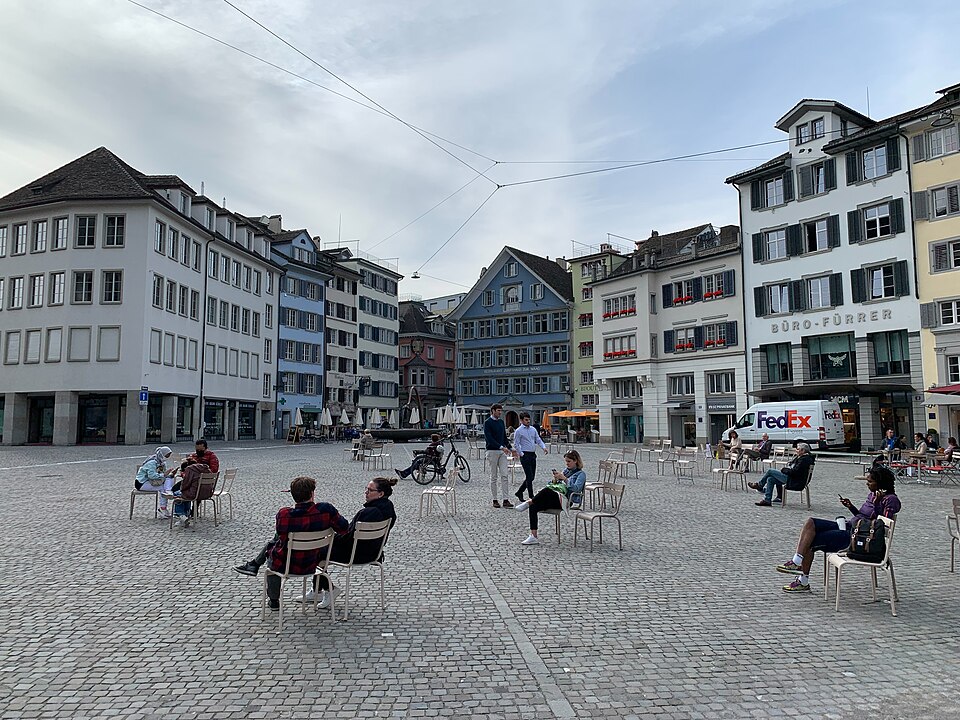 Social distancing seating at Münsterhof, Zürich © Robot8A via Wikimedia
Social distancing seating at Münsterhof, Zürich © Robot8A via Wikimedia
Three versions of civic duty
One of the first things that you realize is that civic duty in one country is not the same as civic duty in another. In our project, the CO-DUTIES project, which we have been studying at the Peace Research Institute in Oslo, we have compared responses to lockdown in Norway, France and the UK. These are three liberal democratic societies, but they are all three slightly different versions of a liberal democratic society. We have a very traditional social democratic model in Norway. We have the less fair variant — the liberal, strongly liberal, variant — in the UK. Then we have in France the much more traditional Republican model. We want to understand how in those societies, first of all, governments framed what they were asking of citizens in different ways. In France, it was very much strongly framed as a duty to the country, to the patrimoine. In Norway, it was framed as what Norwegians refer to as dugnad, or the concept of social volunteering, which is a very strong tradition embedded in society.
 © Ground Picture via Shutterstock
© Ground Picture via Shutterstock
In the UK, it was very much framed in terms of either historical references to the Blitz and the need to do one's duty, or, in many ways, the inverse of that: people's own response, what we referred to at the time as mutual aid — people going out, helping, volunteering. In each of these three countries, we see very different ways of responding to a common need, the need for everybody to stay at home under public health regulations in order to prevent the spread of a pandemic. We also see how the different societies, cultures and political histories of those countries impact upon how both governments asked for and citizens provided their civic duties. One of the most revealing things to come out of the work is really how individuals have to, and always will have to, negotiate a conflict of duties between perhaps the duty to the government to stay at home in order to not spread the pandemic — that is a civic duty — compared to, for example, the duty to one's family, visiting relatives, the need to protect those who are closer to us. That is an associative duty, a different kind of duty. In this language of duties (which is really something I think scholarship has to rediscover and do much more to understand) we have, in many ways, become centered upon a language and an understanding of political society framed through the vernacular of human rights. If we are to understand the inverse of human rights, the duties that all rights require for them to be fulfilled, then we need to understand how these duties are always contextually dependent; they vary from place to place, and for a geographer, that is incredibly interesting.
Negotiating with citizens
One of the fascinating things about studying people's response to lockdown during the pandemic is that it breaks open one of the most interesting questions about liberal democracy, liberal democratic societies more broadly. That is how they manage this tension between what is required in order for society to function — that is, the collective will of a society — and what individuals themselves are required to do in order to fulfill that. As was often described of China at the time, people looked to, for example, the Chinese experience of lockdowns and saw that as very authoritarian. In Western Europe, that was not an option; governments were not able to ensure that citizens obeyed the law. This is the reason why we have speed cameras. We have laws about speeding, but to enforce them, we need to incentivize how individuals react, incentivize them to not be fined. It was a little bit the same in the pandemic. Governments ultimately ended up negotiating with citizens, and we can track how they did this through the ways in which they changed what they were asking for. Initially, all of society was required to stay at home. Increasingly, that became a series of tiers of society — the rule of six. In different settings, different people were asked to do different things, and this became gradually more and more individualized over time. This is really a classic example, to my mind, of how liberal democratic societies work.
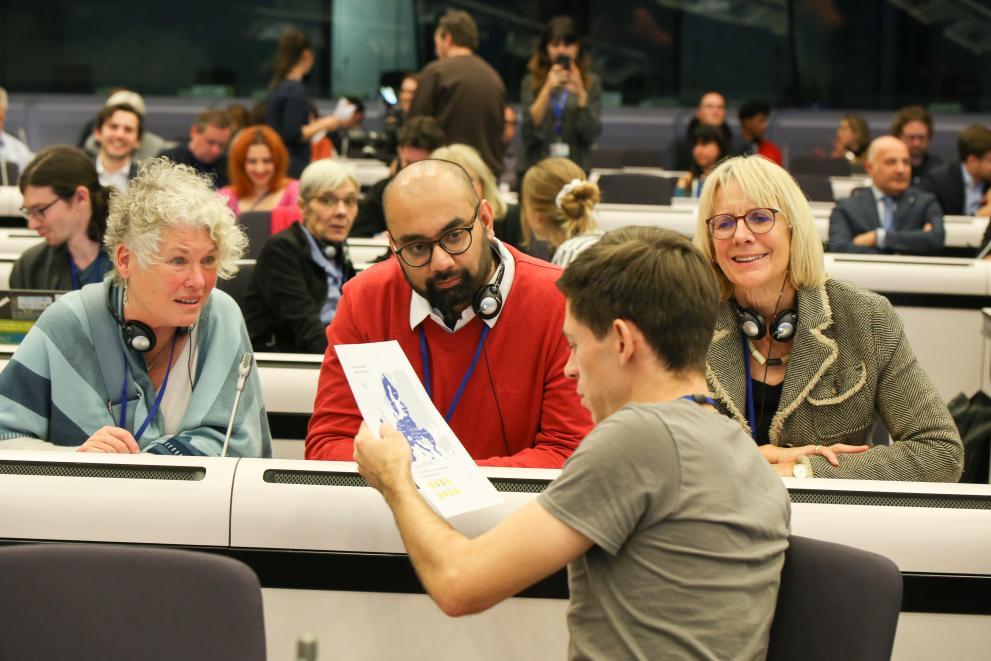 Citizens' Panels © European Commission
Citizens' Panels © European Commission
They are fundamentally a negotiation over the rights and duties of individuals. They are, in that sense, about how freedom and equality are managed and negotiated over time.
Being a good citizen
One of the fascinating things about the pandemic was that very often governments turned to a model of the good citizen in order to encourage individuals to adhere to the public health regulations that were being established. Being a good citizen does not always mean obeying the law.
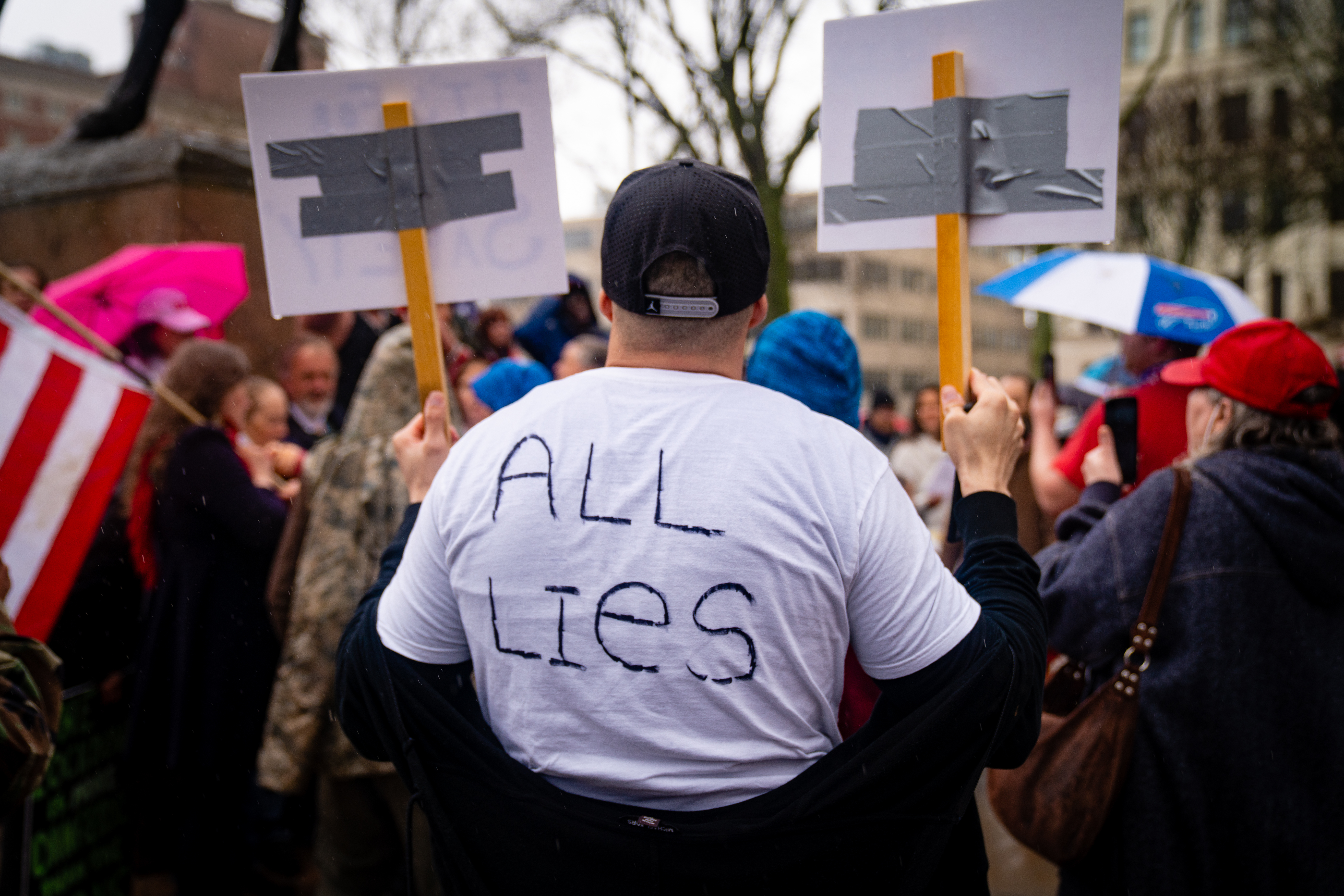 © Wirestock Creators via Shutterstock
© Wirestock Creators via Shutterstock
A classic example of this is civil disobedience or the refusal to sign up to serve in the military, for example, conscientious objection. When we transfer that to the context of the pandemic, we see that in many ways individuals themselves have to negotiate these very thorny questions between what is right and what is wrong, what is individual need and what is collective need. The pandemic offers a unique laboratory, almost, for studying how societies adapt to and change to shifting demands from a government.
Collective common commitments
There are probably very few people who would wish to go back to the pandemic, to what it was like then, but I think there are also very few people who would not recognize that in some ways the pandemic brought us certain things — a certain clarity of understanding that there are important elements of our lives, our relationships, our commitments to others that we value, and that perhaps over recent decades we have not quite had the social or the political language or vocabulary to give full expression to.
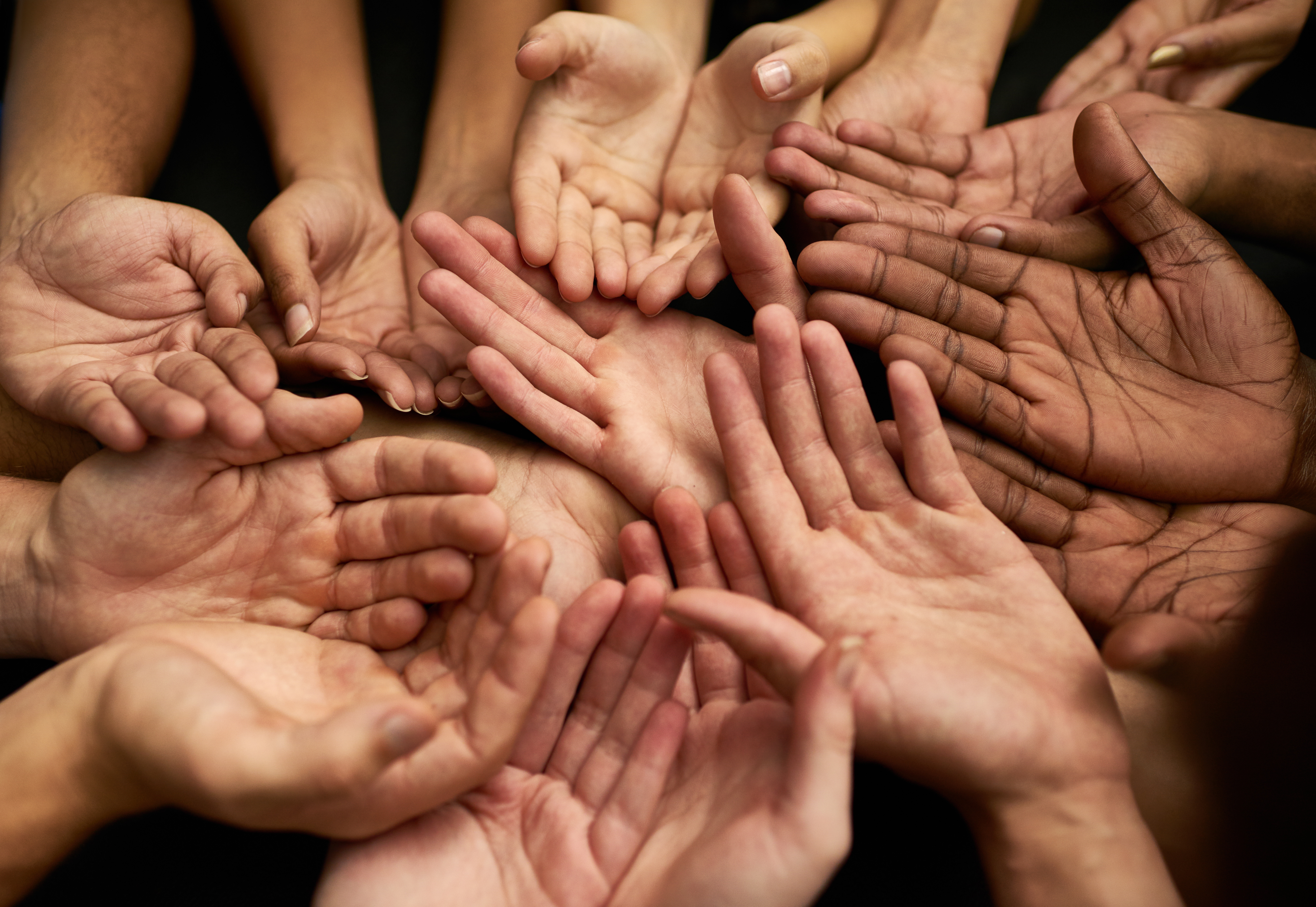 © Shutterstock
© Shutterstock
Partly there are historical reasons for this. There has been, over the last three, four or five decades, a turn to a focus very strongly on individual rights. That is how societies have organized themselves in the Western world. In doing so, there is a risk that we have forgotten some of the benefits of what collective common commitments require. This is not to point people into the need to self-evaluate to become better versions of themselves, to see the benefits of constant self-improvement, which is also something that in neoliberal societies people are frequently encouraged to do. It is more to recognize that there are elements of the common fabric of our social tissue that we need to continue to work upon, that we need to keep exercising a little like a muscle that, if we forget to use it, goes weak, cold and hard. There is something in our society that the pandemic brought back, or at least a recognition of that something in our society, which our study on this resurgence of civic duties in the pandemic is trying to get to the bottom of.
A greater good cause
Another reason to look back to the pandemic and try to understand how it was that we, as societies, responded is to also be better able to look forward to some of the challenges that we are likely, and our children are likely, to confront in the future.
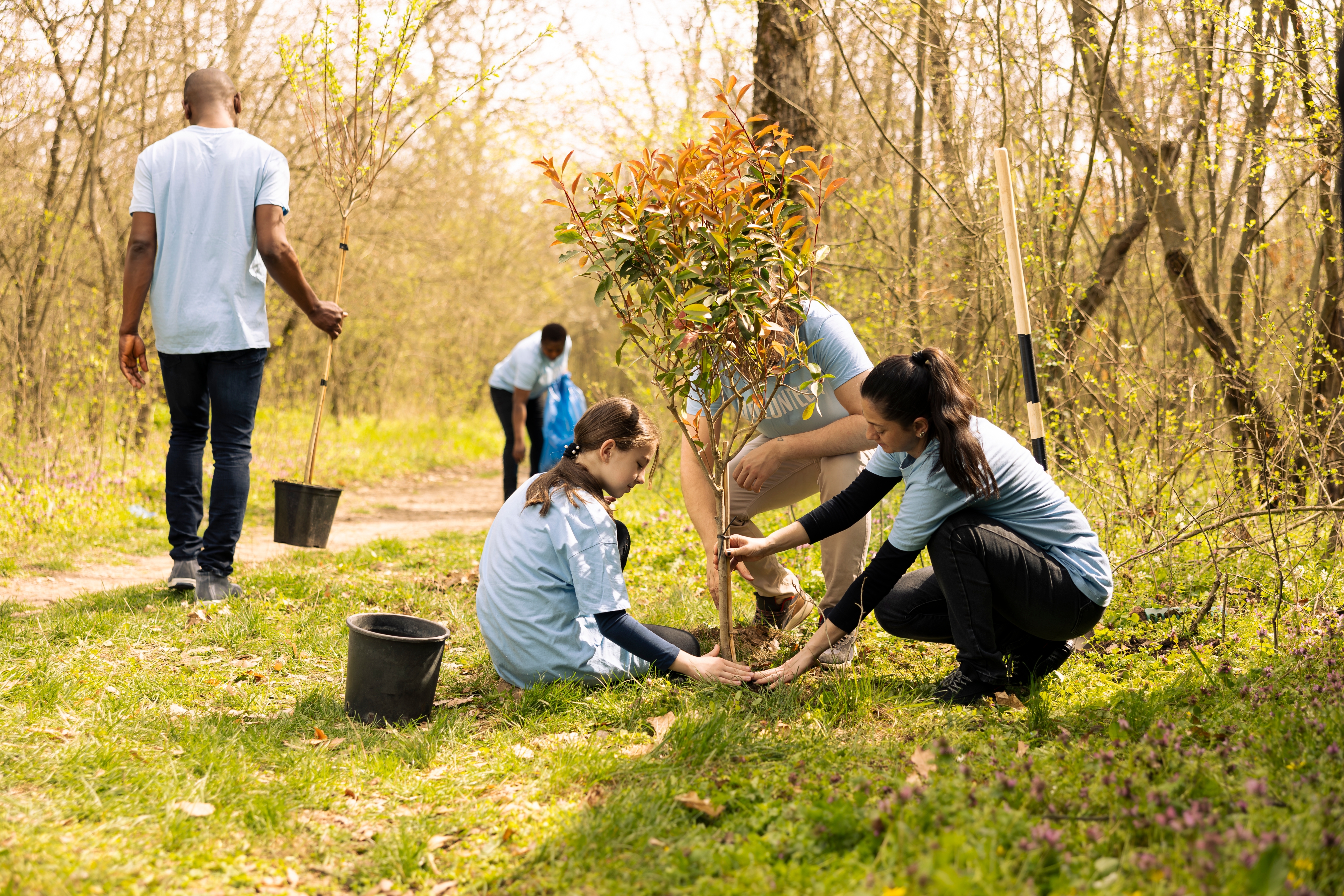 © Shutterstock
© Shutterstock
Unless we are able to understand what it is that citizens are willing to do in the name of a greater good cause, and to really get to the bottom of how we can encourage them but not enforce them to do more, then we are not going to be able to respond at the level, at the scale required in order to mitigate climate change, in order to ensure that our children and their society are adept and resilient in the face of all the challenges they are likely to experience in their lives.
The limits of solidarity
One of the things that we see, when we lift our head up and look outside of Europe or North America in assessing our response to the pandemic and, to some extent, giving ourselves a scorecard on how we did, is the recognition that in other societies and countries the capacity of individuals to live up to their own sense of civic duty, or associative duty to their family, to care for relatives, or even their humanitarian duty to look after those to whom they feel they have an obligation was dramatically compromised by the extent to which we in wealthier Western societies ensured that we had the right — this time the right, not the duty — to take advantage of the vaccines that were produced and financed during the pandemic. The uneven distribution of vaccines during the pandemic, the differential impact, the uneven impact this placed upon societies around the world, is in many ways perhaps the fundamental lesson we need to learn about duties, which is that they operate differently at different scales. We need not only in the modern era to look after our families; we need not only to look after our fellow citizens; we also need to be able to look after other societies in the world.
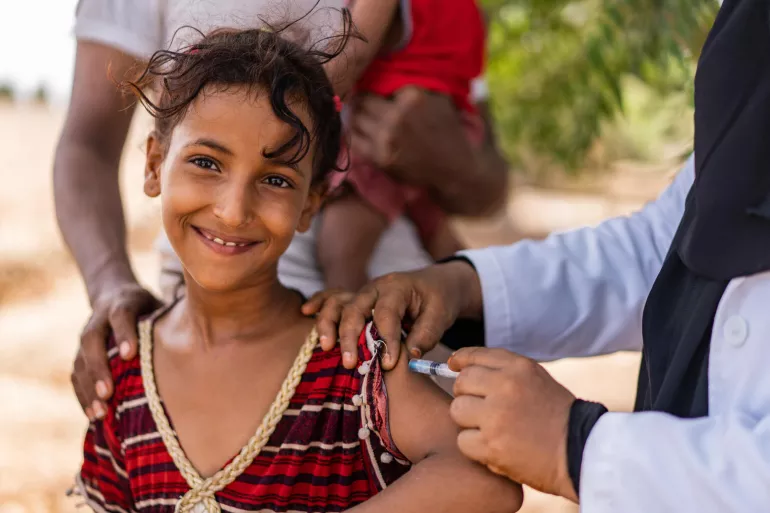 Child vaccination campaign © UNICEF/UN0679332/Hayaan
Child vaccination campaign © UNICEF/UN0679332/Hayaan
The pandemic was really one of the most revealing moments at which the limits of our human solidarity were realized and, in a sense, provides us with the blueprint for all the things that we need to change going forward.
Duties of virtue
I think one misconception about the notion of duty is that it is always necessarily predicated upon some prior right. The reality is that people aspire to fulfill duties in many ways every day of their lives, whether it is through offering care, whether it is through voting, whether it is through fulfilling what it takes for them to be active members of a society, and we do this willingly.
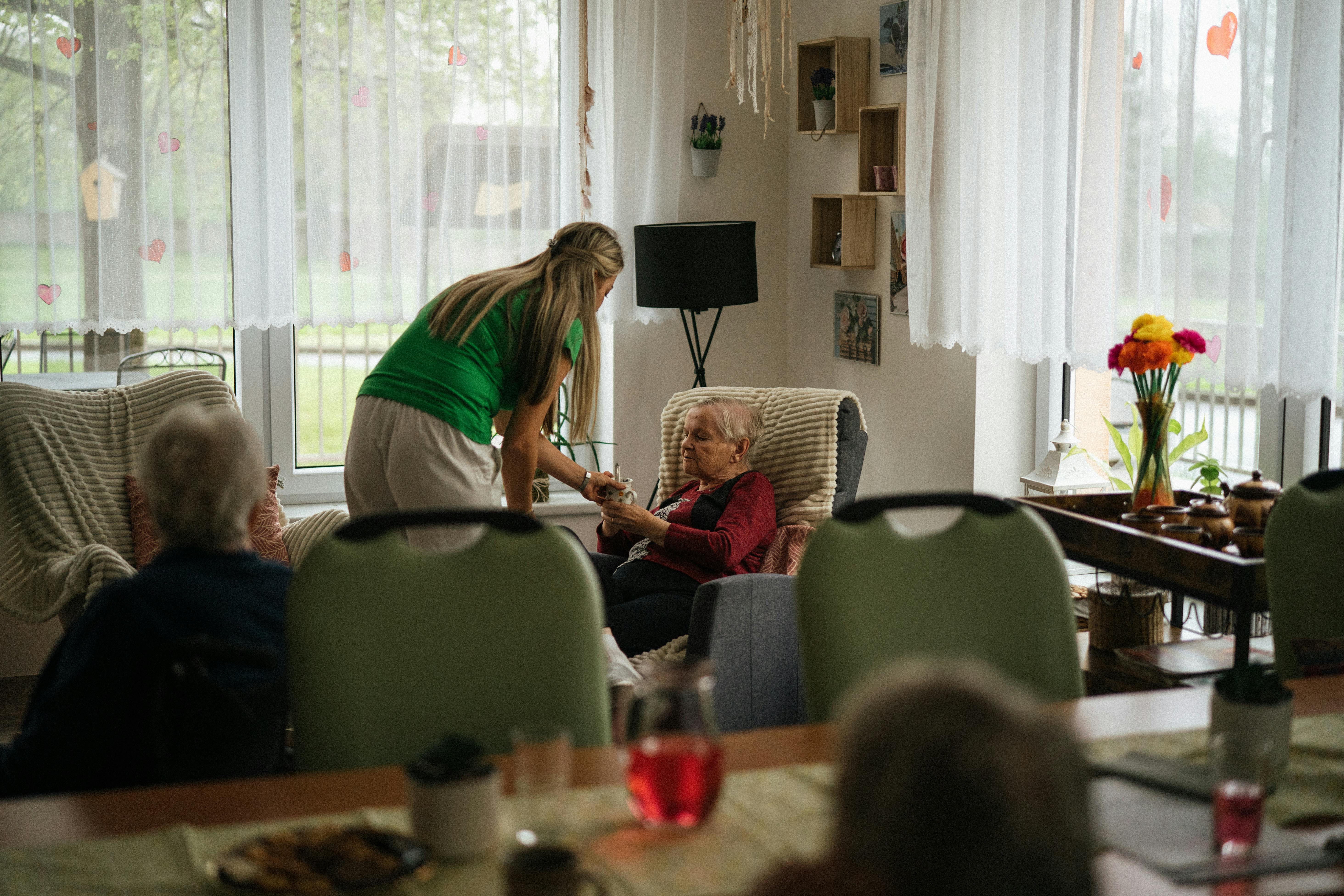 © Pexels
© Pexels
We do it because it enriches our own lives, and we do it because it enriches the lives of those around us. Those duties — the fulfillment of those duties of virtue, as they are often called — are essential to understand, because it is in duties of virtue that we get to the heart of the capacities of liberal democracy as a political system for adapting and responding to challenges. That is one of the most important things that we as scholars and we as activists can try to address.
Editor’s note: This article has been faithfully transcribed from the original interview filmed with the author, and carefully edited and proofread. Edit date: 2025
Discover more about
civic duty
Reid-Henry, S. (2025). Pandemic Financing Should Learn From Revolving Funds. The Lancet 405 (10473), 122–123.
Reid-Henry, S., & Geissinger, A. K. (2023). The politics of duties during COVID-19. PRIO Policy Brief, 3. Peace Research Institute Oslo.
Reid-Henry, S., & Geissinger, A. K. (2023). Collective action, COVID-19, and “strategies of engagement”. PRIO Policy Brief, 6. Peace Research Institute Oslo.
Reid-Henry, S. (2014). Humanitarianism as liberal diagnostic: Humanitarian reason and the political rationalities of the liberal will-to-care. Transactions of the Institute of British Geographers, 39(3), 418-431.
Reid-Henry, S. (led by) (2025). CO-DUTIES: Democratic Duties, Collective Action, and the Greater Good after COVID-19 Peace Research Institute Oslo